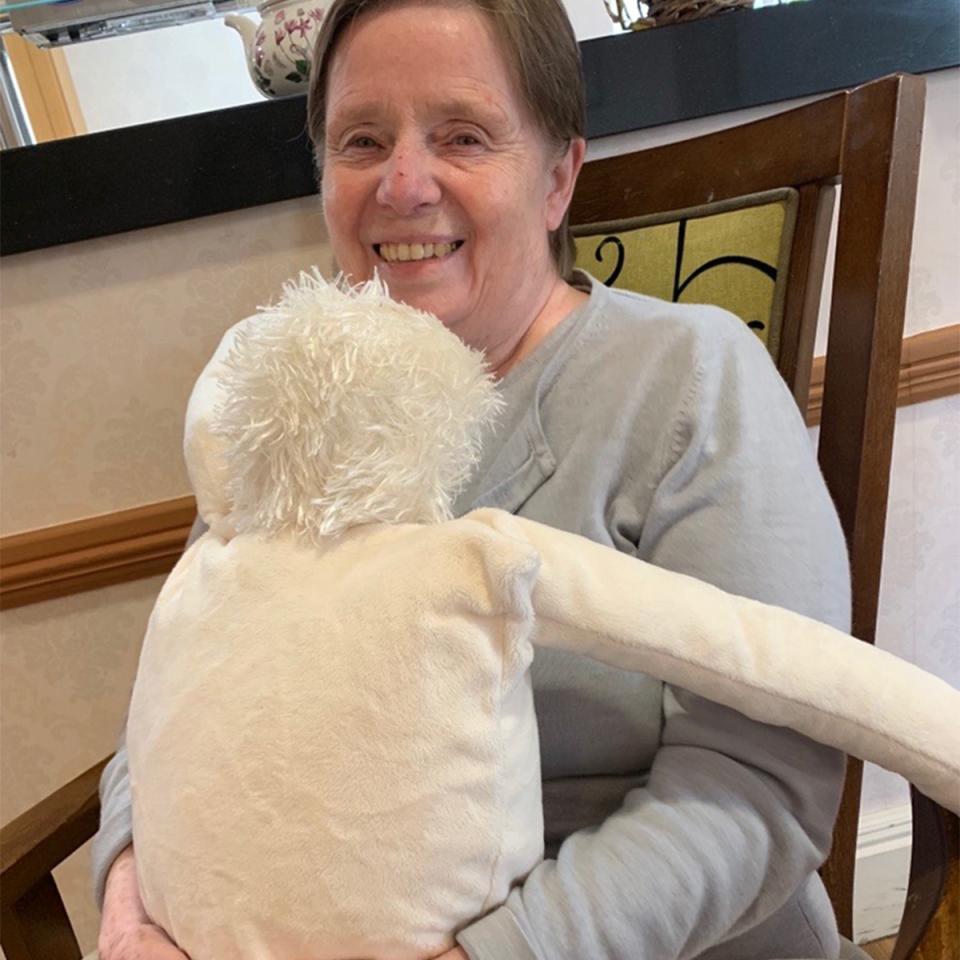
Improving quality of life for people with advanced dementia
An innovative new product by design researchers at Cardiff Metropolitan University has been proven to enhance the quality of life for people living with advanced dementia.
It’s estimated that more than 900,000 people in the UK have dementia. By 2030, this figure is expected to increase to over 1.2 million.
As the disease progresses, people with dementia gradually become less active and lose their mental capacity. Over time, as they find it harder to communicate what they want, they can become withdrawn and isolated.
There has previously been little understanding of how the design industry could help meet the complex care needs of people in the advanced stages of dementia and help them maintain some quality of life.
Building on previous research, this project looked at how products that include playfulness, creativity, hand-use and touch can benefit the wellbeing of people with dementia.
Improving wellbeing and quality of life
The team at Cardiff Metropolitan University developed and tested prototype designs for six objects, each created for a particular person with advanced dementia. Their research showed that these objects could help with people’s care, improve their mood and have a positive impact on their health and wellbeing.
One object, HUG™ (a long-armed, cushion-like, wearable object that contains a beating heart and plays music), was made for Thelma - and had a particularly significant impact on her wellbeing. Her professional carers said it transformed and prolonged her life.
In 2018, the team were awarded funding to evaluate how HUG™ affected twenty people with advanced dementia living in a care home. The trial found that 87% of dementia patients who used a HUG™ for six months had increased functional and cognitive ability and an improvement in their wellbeing.
A further trial has since been run with twenty NHS hospital patients in collaboration with Cardiff and Vale University Health Board.
The team’s research has had a significant impact on the quality of life of people with advanced dementia. The Social Care Institute for Excellence has included it on its website as an example of good practice for the care industry.
Compassionate Design
Based on the research team’s findings, Professor Treadaway wrote Compassionate Design, a toolkit to help designers understand the needs of people with advanced dementia. The Compassionate Design methodology is now taught to design and human-computer interaction students at Welsh, English and Australian universities. Alzheimer’s UK and Care England have also promoted it.
HUG™
In October 2019, the BBC produced a short film about HUG™. Three days after the broadcast, it had been widely shared on social media and there were enquiries about buying HUG™ from members of the public, health boards, care homes and from countries as far afield as Iceland, South Africa and Australia. Requests for information were also received from people living with other conditions such as autism, chronic fatigue and depression.
This success has led to HUG™ being prescribed on the NHS, and the launch of a spin-out company, HUG by LAUGH, to manufacture and sell HUG™.
Research team
Professor Cathy Treadaway, Dr Jac Fennel, Professor Andrew Walters and Aidan Taylor – Cardiff Metropolitan University
Research partners
Birmingham City University, Coventry University, University of Technology, Sydney and Gwalia Housing (now Pobl).
